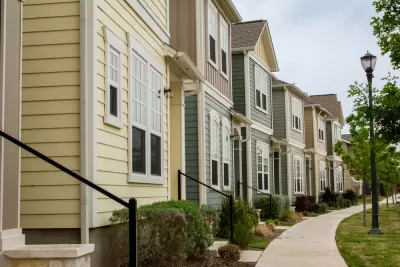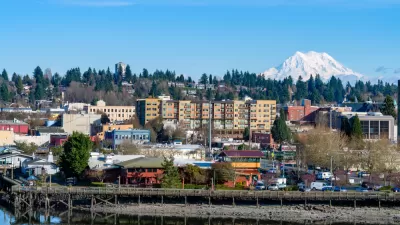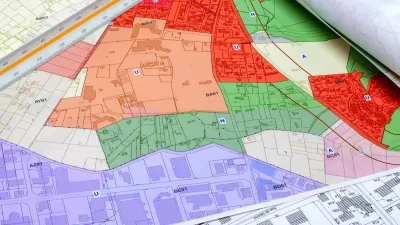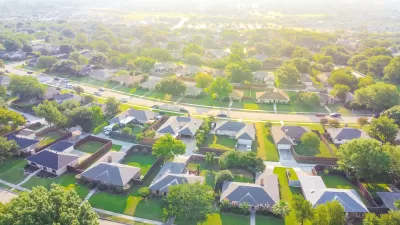Land use and zoning reform is not a magic wand, and effective changes to any planning regime change requires careful work. A new report Urban Institute provides case studies and guidance on how to achieve desired outcomes from a reform process.

Lydia Lo and Eleanor Noble share news of a new Urban Institute report that focuses on the factors that make land-use reforms most effective in promoting housing production and how cities can ensure that new laws produce desired outcomes.
The report examines two land use reform case studies, accessory dwelling unit (ADU) laws in Washington, D.C. and Portland, Oregon. Both took a different approach to ADUs as a response to the demands of increasing populations, and both have different results, with Portland increasing annual ADU by 600 percent, and D.C. went from an average of one ADU produced a year, to an average of 23 ADUs per year.
According to the report, four key takeaways can inform effective land us reform, shared here with more details on each point listed in the source article:
- Establish shared and coherent urban planning goals
- Analyze volunteer participants’ economic and racial composition and supplement their input (as needed) with data to ensure representative decisionmaking
- Reform regularly as new evidence emerges
- Strengthen other housing system supports
According to the article, planners shouldn't take it as a given that land use reforms will create the outcomes demanded of the AICP Code of Ethics: even reforms that do achieve the desired increase of housing production might fail to benefit all the residents of a community.
The need for effective land use reform—not just performative reform that checks political boxes but doesn't achieve the desired change—is on display currently in Minneapolis, which is drafting the zoning code changes necessary to implement the vision laid out by the Minneapolis 2040 Comprehensive Plan.
For more on effective land use reform, see previous coverage of other expert takes on the subject from Planetizen:
- Opinion: The Zoning Reform Discourse Needs a Dose of Reality (August 3, 2020)
- A Playbook for Achieving Meaningful Development Regulation Reform (October 18, 2017)
FULL STORY: Four Lessons to Strengthen Land-Use Reforms

Alabama: Trump Terminates Settlements for Black Communities Harmed By Raw Sewage
Trump deemed the landmark civil rights agreement “illegal DEI and environmental justice policy.”

Study: Maui’s Plan to Convert Vacation Rentals to Long-Term Housing Could Cause Nearly $1 Billion Economic Loss
The plan would reduce visitor accommodation by 25% resulting in 1,900 jobs lost.

Planetizen Federal Action Tracker
A weekly monitor of how Trump’s orders and actions are impacting planners and planning in America.

Wind Energy on the Rise Despite Federal Policy Reversal
The Trump administration is revoking federal support for renewable energy, but demand for new projects continues unabated.

Passengers Flock to Caltrain After Electrification
The new electric trains are running faster and more reliably, leading to strong ridership growth on the Bay Area rail system.

Texas Churches Rally Behind ‘Yes in God’s Back Yard’ Legislation
Religious leaders want the state to reduce zoning regulations to streamline leasing church-owned land to housing developers.
Urban Design for Planners 1: Software Tools
This six-course series explores essential urban design concepts using open source software and equips planners with the tools they need to participate fully in the urban design process.
Planning for Universal Design
Learn the tools for implementing Universal Design in planning regulations.
Caltrans
Smith Gee Studio
Institute for Housing and Urban Development Studies (IHS)
City of Grandview
Harvard GSD Executive Education
Toledo-Lucas County Plan Commissions
Salt Lake City
NYU Wagner Graduate School of Public Service





























